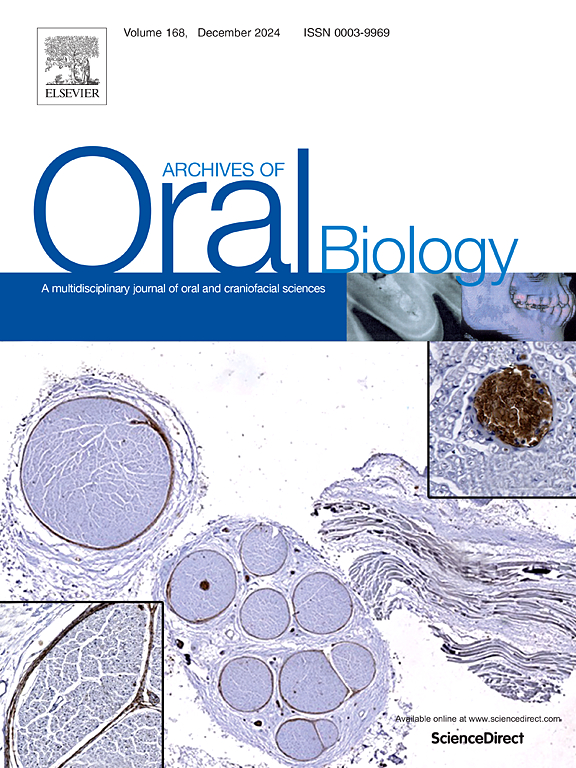The influence of microorganisms on bone homeostasis in apical periodontitis
IF 2.2
4区 医学
Q2 DENTISTRY, ORAL SURGERY & MEDICINE
引用次数: 0
Abstract
Objective
This review aims to provide an overview of the role of microorganisms in the onset and progression of periapical diseases, particularly regarding their effects on bone homeostasis.
Design
The search for this narrative review was conducted in PubMed, Web of Science and Google Scholar using relevant keywords, including checking reference lists of journal articles by hand searching.
Results
Microorganisms directly promote osteoclasts through pathways such as nuclear factor-κB (NF-κB) and extracellular regulated protein kinases (ERK), while inhibiting osteoblasts function by interfering with the wingless-related integration site (Wnt)/β-catenin pathway in the periapical area. Moreover, microorganisms indirectly regulate periapical bone homeostasis by inducing programmed cell death and modulating the immune microenvironment through the activation of innate immunity via pattern-recognition receptors (PRRs) and subsequent cascades of responses. Among these microorganisms, Enterococcus faecalis, Porphyromonas gingivalis and Fusobacterium nucleatum play significant roles.
Conclusion
Microorganisms regulate pathways such as NF-ĸB and Wnt/β-catenin, as well as programmed cell death and the immune microenvironment in the periapical area, thereby disrupting bone homeostasis.
微生物对根尖牙周炎患者骨稳态的影响。
目的:本综述旨在概述微生物在根尖周围疾病的发生和发展中的作用,特别是它们对骨稳态的影响。设计:使用相关关键词在PubMed、Web of Science和b谷歌Scholar中检索本叙述性综述,包括手工检索期刊文章的参考文献列表。结果:微生物通过核因子-κB (NF-κB)和细胞外调节蛋白激酶(ERK)等通路直接促进破骨细胞,同时通过干扰根尖周围区域的无翼相关整合位点(Wnt)/β-catenin通路抑制成骨细胞功能。此外,微生物通过模式识别受体(PRRs)和随后的级联反应激活先天免疫,通过诱导程序性细胞死亡和调节免疫微环境,间接调节根尖周骨稳态。在这些微生物中,粪肠球菌、牙龈卟啉单胞菌和核梭杆菌起着重要的作用。结论:微生物通过调控NF-ĸB和Wnt/β-catenin等通路,以及细胞程序性死亡和根尖周围免疫微环境,从而破坏骨稳态。
本文章由计算机程序翻译,如有差异,请以英文原文为准。
求助全文
约1分钟内获得全文
求助全文
来源期刊

Archives of oral biology
医学-牙科与口腔外科
CiteScore
5.10
自引率
3.30%
发文量
177
审稿时长
26 days
期刊介绍:
Archives of Oral Biology is an international journal which aims to publish papers of the highest scientific quality in the oral and craniofacial sciences. The journal is particularly interested in research which advances knowledge in the mechanisms of craniofacial development and disease, including:
Cell and molecular biology
Molecular genetics
Immunology
Pathogenesis
Cellular microbiology
Embryology
Syndromology
Forensic dentistry
 求助内容:
求助内容: 应助结果提醒方式:
应助结果提醒方式:


